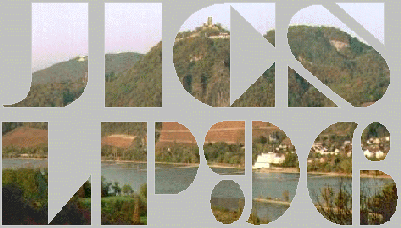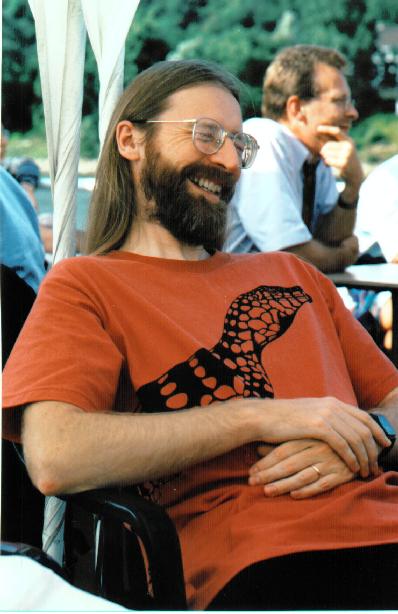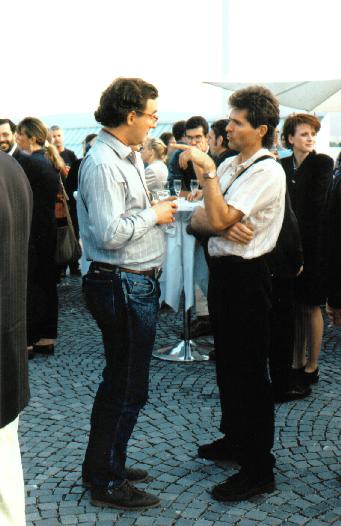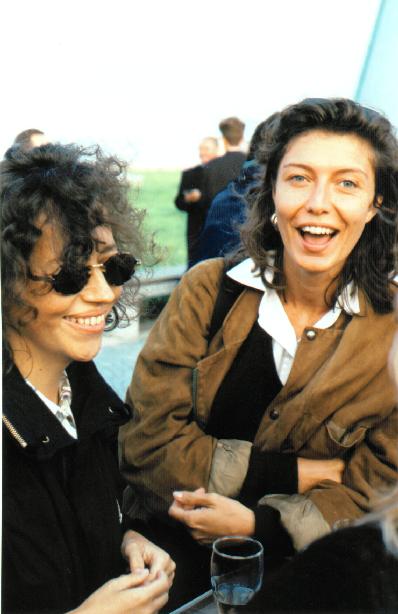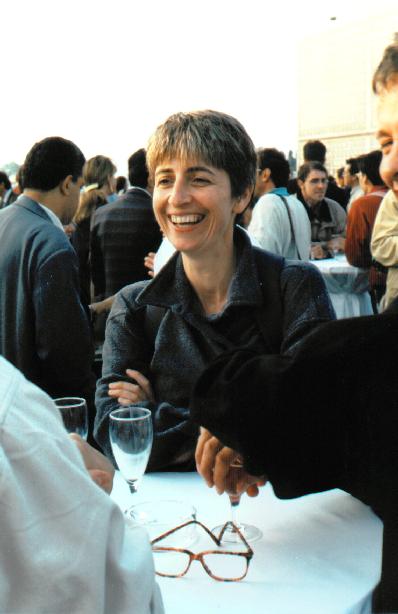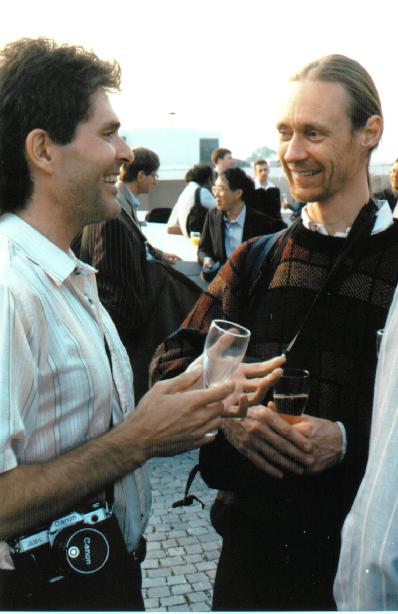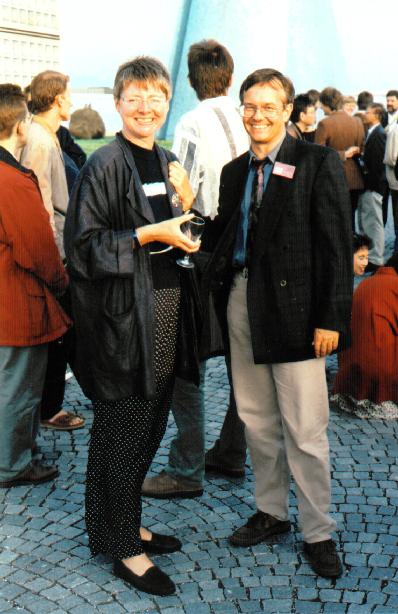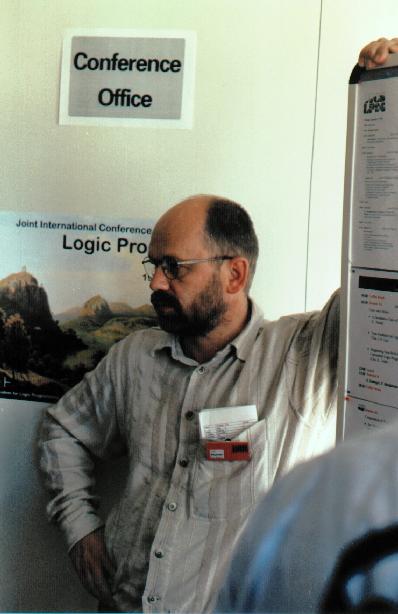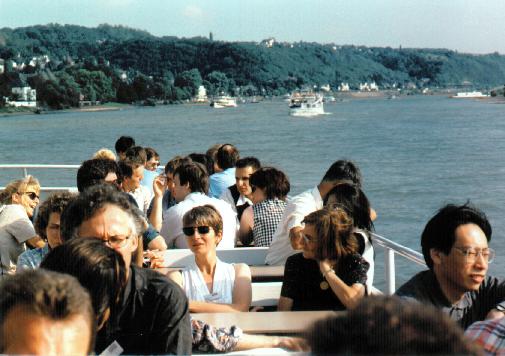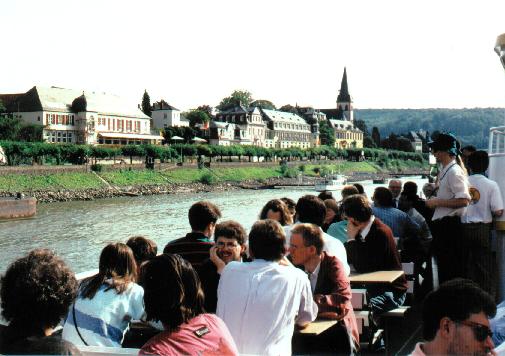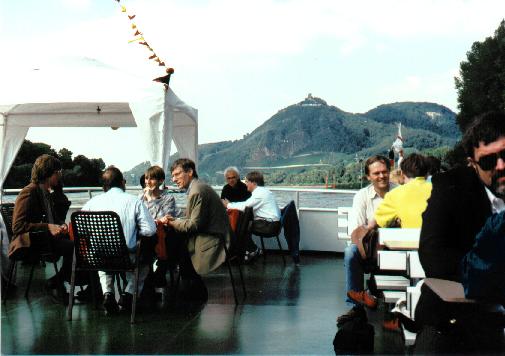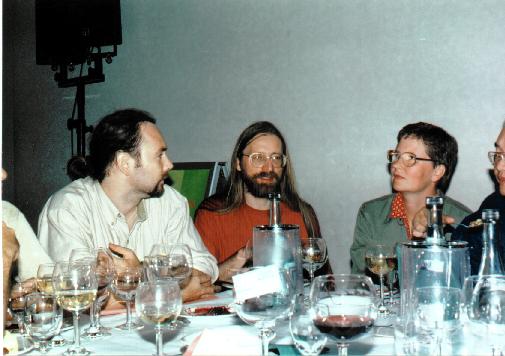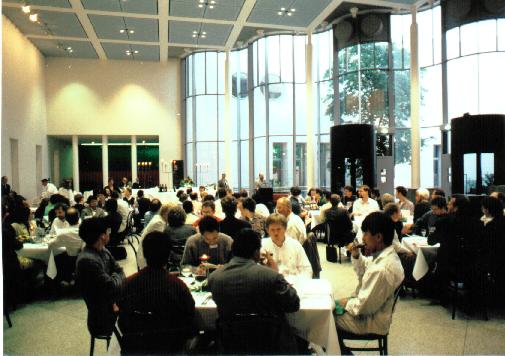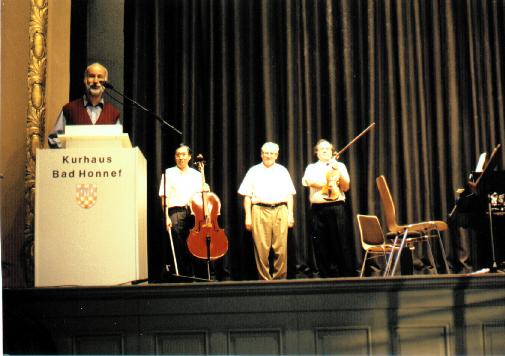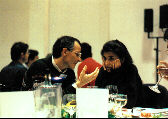Joint International Conference and Symposium on Logic Programming
September 2 – 6, 1996
Bonn, Germany
Every four years, the two major scientific events of the Logic Programming community, the International Conference ICLP and the International Symposium ILPS, are organized jointly in one place and during one week. Both conference series are managed by ALP, the Association of Logic Programming. JICSLP’88 took place in Seattle, JICSLP’92 in Washington, D.C. This year, the joint conference will be held in Europe for the first time. We would like to invite all researchers active in the area of Logic Programming as well as every scientist interested in the most recent results and trends in LP to come to Germany in September and to participate in JICSLP’96 – this year’s only scientific conference on Logic Programming.
As many of you will have noticed, Logic Programming is not among the most fashionable or trendy branches of computer science these days. Like other more traditional fields in computing, LP currently suffers from decreasing numbers of paper submissions and conference attendees. We believe that it is particularly important for researchers to actively demonstrate their interest and support for the area they are working in during such periods when “their” field seems to appear less exciting than other new and booming areas. Apart from that, we believe that quite independent of the overall situation in science this year’s JICSLP offers quite an attractive program which we try to enrich by a pleasant and stimulating athmosphere.
PROGRAM
First and foremost, a competitive scientific program has been selected by an international program committee – chaired by Michael Maher of Brisbane. The number of accepted papers (35) is a bit lower than in previous years, reflecting the PC’s intention not to allow standards to decline in times of lower submission rates (121 this year). The twelve regular paper sessions will be complemented by four invited talks to be presented by prominent researchers in the field:
- Wolfgang Bibel,
- Michael Genesereth,
- Jean-Francois Puget (Constraint Programming), and
- Ehud Shapiro (Virtual Places: An Architecture for Live Interaction on the Internet).
and by two tutorials of two hours each – placed as plenary sessions in the conference program – will be devoted to new logic languages turned into efficient systems: The Mercury language developed in Melbourne will be presented, and the LP group of D.S. Warren from Stony Brook will summarize their work on combining LP with tabulation techniques.
- Principles, Practice and Applications of Tabled Logic
Programming (I. V. Ramakrishnan, K. Sagonas, T. Swift, D. S. Warren) - The Design and Implementation of Mercury (Z. Somogyi)
In a separate evaluation, a poster committee chaired by Norbert E. Fuchs of Zurich and Ulrich Geske of Berlin about 20 submissions have been accepted for short presentation in a special poster session.
Like in previous years, a number of attractive and up-to-date topics will be covered by a series of post-conference workshops (organized in parallel during the last one and a half days of JICSLP):
- Non-Monotonic Extensions of Logic Programming (Juergen Dix, Luis M. Pereira, Teodor Przymusinski)
- Verification and Analysis of Logic Programs (Frank S. de Boer, Maurizio Gabbrielli)
- What Can Logic Programmers Learn From Functional Programmers? (Herbert Kuchen, Juan Jose Moreno-Navarro, Philip Wadler)
- Parallelism and Implementation Technology for (Constraint) Logic Programming Languages (Manuel Carro, Enrico Pontelli, Manuel Hermenegildo)
- Logic Programming and Soft Computing (Francesca Arcelli, Ferrante Formato, Trevor Martin)
- Deductive Databases and Logic Programming (Fosca Giannotti, Dmitri Boulanger, Ulrich Geske, Dietmar Seipel)
- Multi-Paradigm Logic Programming (Yike Guo, Jose Meseguer, Tetsuo Ida, Joxan Jaffar)
- Logic Programming Tools for INTERNET Applications (Paul Tarau, Andrew Davison, Koen De Bosschere, Manuel Hermenegildo)
- Metaprogramming and Metareasoning in Logic (META96: Jonas Barklund, Stefania Costantini, Frank van Harmelen)
Workshop proposals have been reviewed and selected by Michael Hanus of Aachen.
Last not least, we hope to be able to equip the conference site with a sufficient number of machines in order to run a Prolog Programming Contest again this year. Bart Demoen of Leuven offered to organize this competition as he did before (see the most recent LP Newsletter for a report about the 1995 contest in Portland).
Complete list of regular contributions is available from the DBLP Database
ORGANIZATION
- General Chairs: Rainer Manthey, Lutz Plümer (University of Bonn, Germany)
- Program Chair: Michael Maher (Brisbane)
- Workshop Chair: Michael Hanus (RWTH Aachen, Germany)
- Poster chairs: Norbert E. Fuchs (University of Zurich, Switzerland)
Ulrich Geske (GMD-FIRST Berlin, Germany) - Publicity Chair: Thomas H. Kolbe (University of Bonn, Germany)
- Local Organization: Christine Harms (GMD, Germany)
- Program Commitee: Annalisa Bossi, Philippe Codognet, Saumya Debray, Bart Demoen, Jürgen Dix, Mireille Ducasse, Steve Gregory, Gopal Gupta, Sverker Janson, Paris Kanellakis, Helene Kirchner, Jean-Louis Lassez, Giorgio Levi, (Michael Maher, Chair), Rainer Manthey, Wiktor Marek, Kim Marriott, Dale Miller, Lutz Plümer, Peter Reintjes, Mario Rodriguez-Artalejo, Taisuke Sato, Divesh Srivastava, Peter Stuckey, Paul Tarau, Kazunori Ueda, Mark Wallace
PHOTO GALLERY
VENUE
Bonn is not one of the major places in Germany, but a medium-sized, rather traditional city of 300.000 inhabitants. Nevertheless, Bonn is well-known all over the world due to the fact that it has been the capital of the Federal Republic of Germany since 1949. After the Reunification of Germany, the old capital, Berlin, has been reassigned this role. Parliament and government will move from Bonn to Berlin during the next decade, but Bonn will remain the seat of several ministeries and many international organizations. Besides its political role, Bonn has been a famous academic place for long time. The University of Bonn has been founded in 1808 and is one of the biggest in Germany by now (about 36.000 students). Many famous scientists have been teaching at the university since the early 19th century. Bonn’s mathematicians are world-famous, not least because of the Max-Planck-Institute of Mathematics situated in Bonn as well. The Institute of Computer Science has been founded more than 25 years ago and offers a good mix of strong theoretical and attractive applied and practical research areas. One of the biggest LP groups in Germany has been working in Bonn since many years.
The site of the conference will be Bad Honnef, a small town situated at the Eastern shore of the Rhine opposite to Bonn, surrounded by the Siebengebirge mountains. The most famous of these seven mountains – the “Drachenfels” – overlooks Bad Honnef. It is closely linked to the ancient tale of Siegfried and the Dragon (as featured in Richard Wagner’s operas). The Drachenfels is visited by millions of tourists every year and can be reached on foot or by train.
Bad Honnef is situated within the most Northern wine growing area in Germany. In September, there will be plenty of “Winzerfeste” (wine growers feasts) going on in the area attracting ten thousands of people from all over the country. Of course, one of the social events will be devoted to studies of local wine both from a theoretical and practical perspective. Bad Honnef has been the residence of Germany’s famous post-war Chancellor, Konrad Adenauer. His former home can still be visited today.
The conference will be held at a specialized conference hotel, called Seminaris, offering ideal facilities for every aspect of a conference like JICSLP: all sessions, workshops, meetings, poster presentations, breaks and meals will be available in this place. The hotel offers a sufficient number of modern, comfortable and fully equipped rooms at very reasonable rates. In addition, a wide range of recreational facilities is available at the Seminaris including swimming pool, sauna, fitness room and so on. Seminaris will be reserved to JICSLP attendees during the conference week so that there will be no danger of “getting lost”. The cosy downtown area of Bad Honnef offering shops, restaurants and leisure facilities (“Bad” means “spa” in English) can be reached by just a few minutes walking.
For the more energetic (and for those feeling like having to escape the one or the other session) there is a wide choice of activities such as walks along the river or through the mountains and vineyards, boat trips, excursions to downtown Bonn or to near-by Cologne (a one-million-inhabitants city with a rich cultural and historical heritage including the world-famous cathedral, the “Kölner Dom”).
Bonn and Bad Honnef can be reached easily by car (a motorway leads into Bad Honnef, free parking space is available in front of the hotel). By plane you may either go directly to the Cologne-Bonn airport, or – if you come from overseas – go to Frankfurt or Düsseldorf international airports and go to Bonn by train. The trip from Frankfurt airport (train station inside the airport building) directly to Bonn takes less than two hours and offers a very scenic ride along the most beautiful part of the Rhine river – don’t miss it if you have the choice! The conference organizers will be happy to assist you in planning your trip.

